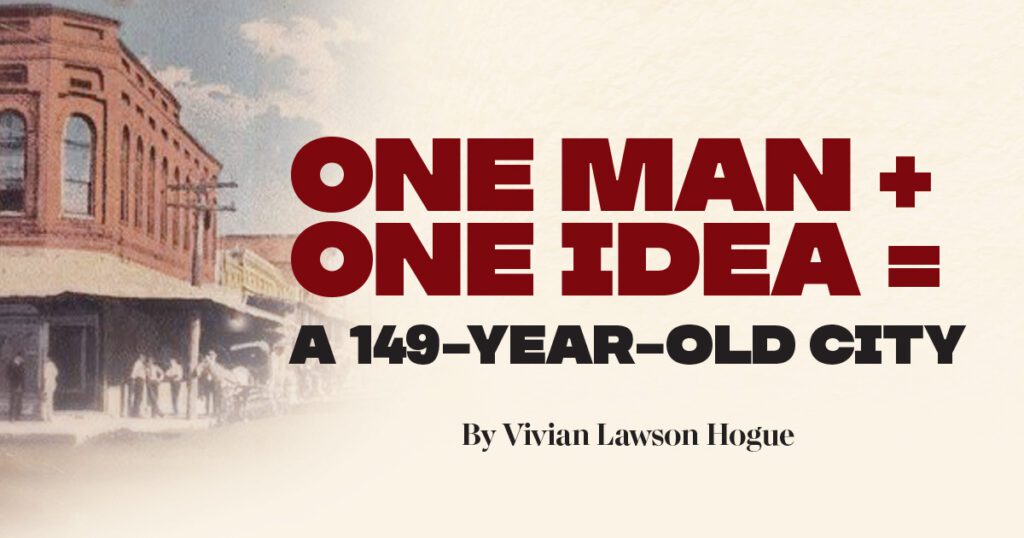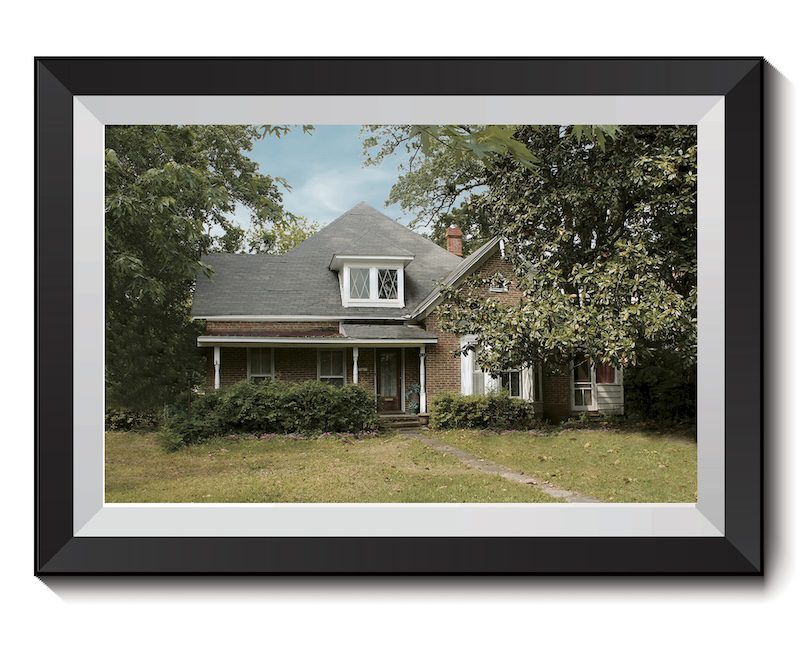02 Jun 2024 One man plus One idea equals a 149-year-old city
By Vivian Lawson Hogue
If we are blessed enough to reach 80, we will have lived 29,219 days, 701,266 hours and 42,075,936 minutes. If we put some thought into it, we will surely begin to wonder what we’ve done with those moments. It actually depends on role models, the manners in which we were raised, our initiative and determination, physical, mental and spiritual conditions, a desire for a productive life and a salary to provide basic needs. Having stable, nurturing, involved parents helps greatly. It is rare for us to have all of these backgrounds.

It also depends on the era and culture in which we were raised, which led me to study the Faulkner Countians who came before us. Obviously, the number of those who came to these Ozark foothills before 1819 was sparse. By whatever means and manner they arrived, for most it had been a hard trip.
Later, many brave souls arrived after difficult circumstances resulting from the Civil War, which was not so civil. They brought with them their building skills, farming experience and families that were good starts for communities which would eventually include churches, schools and businesses.
By 1871, Asa Peter Robinson, our city’s Connecticut-born founder, was an exception to the oxen and wagon travel. Having been a railroad chief engineer, he came into Conway Station on an easy ride and built his home by the train tracks. He disliked the wagon trips to Cadron to get his mail, so he simply created his own town with its own post office, lots of beautiful trees, and hunting grounds on the surrounding prairie.
Robinson’s wife, Lucy, was from New York City. Lucy died, leaving two children, and Asa married Mary Louise de St. John of Montreal, Canada. Imagine living in either of those two cities and moving to a quiet land of trees, prairies, birds and few people or conveniences. Notice that Asa named streets appropriately as Oak, Ash, Elm, Locust, and Chestnut. He also included Deer, Prairie and Court Streets, the latter his failed intention for the Courthouse location. As the town spread, streets were named for prominent men.
The population grew, and laws were needed, so several early residents coming to Conway were attorneys. The first one of note was Col. George Washington Bruce of Georgia. After serving in the Civil War battles of Savannah, the second Battle of Manassas and finally Murfreesboro, he became a prisoner of war until the war ended. Bruce seems unnoticed today, but because he built my home in 1910 for his son’s wedding present, I am fascinated by a high-profile family that no longer exists in our town.
Everyone working or studying at Hendrix College, the University of Central Arkansas, or Central Baptist College should know that the Colonel can be thanked for his involvement in and financing of these colleges. In fact, Bruce used personal funds to help found and fund the colleges, to the point of bankruptcy and the loss of his beautiful mansion, which I enjoyed visiting long after he was deceased.

In 1878, attorney Charles Wilkins Cox came to Conway from Kansas, where he was raised and educated. He began his career here and later married Carrie Bruce, daughter of Col. Bruce. He is also recognized for creating a “tie that binds” when he founded a local newspaper called the Conway Democrat in 1878.
Sam Frauenthal moved to Conway from Kentucky in 1882. He had a large law practice and was known for financially supporting many local causes. Other lawyers for this small town were George Hartje, an attorney and state senator. P.H. Prince, a native of Mississippi, arrived in Conway in 1874. Prince’s home is reportedly the first brick home built and still stands on the street that bears his name.
In 1880, as the seven-year-old town grew, merchants were wanted and needed. That year, there were blacksmiths, carpenters, grocers, a tinner (one who makes or repairs items made of tin), planters and saddlers. Merchants owned mercantiles, hotels, liveries (businesses caring for horses), mule barns and a jewelry store. Although not as many, there were also necessary ministers, physicians and drug stores.
You will not see women in the founding of these entities because in this era, most families were whole, and the father was head of the family. Their guidebook, the Bible, set forth that concept, with women as the indispensable helpers. They were needed for teaching, tending the home and children and supervising the family unit.
Besides prestigious career men, other older men remain in the memories of some of us. Those were the men of the small, subsistence farms who, for years, came to town on Saturdays. They hunkered in the shade of Massey Hardware store wearing their “overhauls” (overalls) and brogans (work shoes), smoking unfiltered cigarettes and spitting tobacco juice.
Ah, yes. Those were the days.
- They found their ‘true grit’ - January 5, 2026
- And that’s what Christmas is really all about - December 2, 2025
- Giving thanks - November 4, 2025









